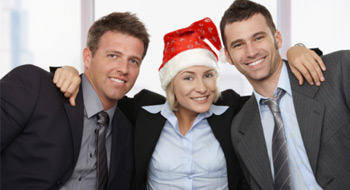

The holiday season is around the corner—and with it comes festivities and celebrations. Whether these seasonal events are large or small, employee health and safety remains a key priority for employers.
The case law on employer liability
Over the years, a number of court decisions have signalled that employers face a risk of liability should an employee be permitted to drink too much at a work-related function. There is the potential negative impact on the employment environment generally, and on an employer’s reputation, should an employee become intoxicated and engage in inappropriate behaviour. There is also the potential for safety-related liability, especially should an intoxicated employee drive home afterward, with the possibility of injury to the employee or to an innocent third party.
A case out of Alberta suggests that liability can also arise even in the absence of an alcohol-related incident. The court ultimately found an employer liable for the death of an employee where the employer allowed its employees to operate faulty, rented equipment (a calf-roping machine) at a work-related function, without proper training or oversight.
Read: Office holiday parties a victim of budget cuts
Holiday celebration checklist
Prudent employers should take steps to provide all attendees with a safe and enjoyable environment, and to provide safe transportation alternatives for returning home. If you rent equipment or machinery for entertainment, ensure that it is properly assembled, maintained and operated by trained staff. Better yet, hire a competent operator to operate the equipment on your behalf.
If your celebrations will include the consumption of alcohol, consider some of the following options to enhance safety:
- Do not provide an open and unsupervised bar.
- Close the bar an hour or more before the party ends.
- Monitor employees’ alcohol consumption.
- Consider utilizing a ticket system to limit the number of drinks an employee or other guest may have during the party.
- Hire a third party (who can monitor consumption) to tend the bar and serve the drinks to employees and guests.
- Prior to the event, inform employees that they are not to drink and drive, and remind them at the start and end of the event.
- Set up alternative transportation options for employees prior to the party, and be sure to communicate them clearly to employees.
- Provide taxi chits to employees, and do this at the outset of the event. Designate employees to proactively distribute the chits.
- Consider establishing carpools with designated drivers who agree not to drink at the event.
- Assist in arranging for hotel rooms for employees who live far from the event, perhaps by arranging a reduced rate with a nearby hotel.
Even if employers take positive steps to limit alcohol consumption, there may be some employees who drink too much and become intoxicated. In that event, employers may have an obligation to take positive steps to ensure that the employee does not drive. For example:
- Consider a system whereby employees leave their car keys with an attendant at the start of the evening to avoid the situation of having to remove keys from an intoxicated guest.
- Arrange to have a sober co-worker drive the employee home. Alternatively, call the employee’s spouse. Don’t just offer to do so.
- Insist that the employee take a cab, and pay for it.
- If all else fails, and the employee insists on driving in an intoxicated state, call for police assistance.
By planning ahead of time, employers can help avoid many of the problems associated with excess alcohol consumption, and can ensure that an enjoyable and safe time is had by all.
Paul E. Broad is partner at Hicks Morley and is a member of the firm’s knowledge management group. And Pamela M. Hillen is a Hicks Morley knowledge management lawyer. This article originally appeared in Hicks Morley’s FTR Now publication. The views expressed are those of the authors and not necessarily those of Benefits Canada.
Last week’s most popular articles:
